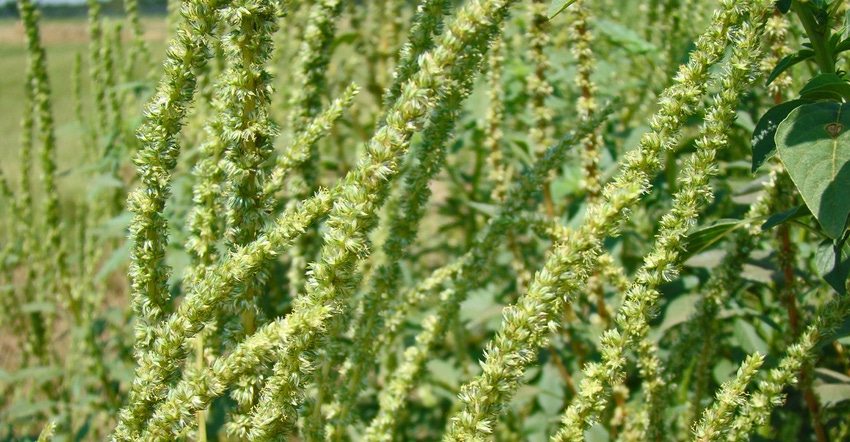December 4, 2019

Palmer amaranth seed has been added to South Dakota’s list of prohibited noxious weed seeds. Seed for sale within South Dakota may not contain prohibited noxious weed seeds, including Palmer Amaranth, in any amount.
Other prohibited noxious weed seeds include Canada thistle, field bindweed, hoary cress, horse nettle, leafy spurge, perennial sowthistle and Russian knapweed.
According to changes in the law, restricted noxious weed seeds cannot exceed a cumulative total of 20 per pound of seed. Restricted noxious weed seeds are highly objectionable and difficult to control in specific crops, fields, lawns and gardens.
Restricted noxious weed seeds include annual bluegrass, dodder, field pennycress, giant foxtail, hedge bindweed, musk thistle, plumeless thistle, quackgrass, spotted knapweed, wild carrot, wild mustard and wild oats.
Additionally, seed for sale from bluestems, gramas, indiangrass and prairie sandreed may not contain weed seed more than 3% by weight. Seed for sale other than these grasses may not contain weed seed more than 1% by weight.
When buying seed, carefully examine the seed labels and ask to see the official seed analysis report if a percentage of weed seed is listed. Doing so will help deter the spread of weeds in South Dakota.
Source: South Dakota Crop Improvement Association, which is solely responsible for the information provided and is wholly owned by the source. Informa Business Media and all its subsidiaries are not responsible for any of the content contained in this information asset.
Read more about:
Palmer AmaranthYou May Also Like




